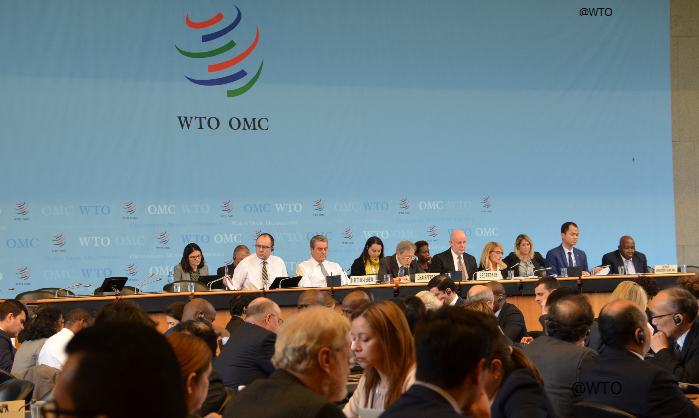
In the WTO Deputy Director General Anabel González’s own words, “anything that the WTO or the international community does to put trade on a sound footing by definition contributes to weeding illicit trade and fraud. Nothing would be ‘illicit’, if we did not have a benchmark for what is ‘licit.’” We were particularly pleased to see the willingness of the WTO to focus more on this topic of significant importance, as demonstrated by the recent “WTO Trade Dialogues on Food” webinar, held on 3 March. We can only concur with the view that, by opening up trade, providing a common rule-book and facilitating “licit” trade, the WTO has a key role to play in weeding out illicit trade & food fraud.
Illicit trade in the agri-food sector comes in many forms and manifestations, ranging from economically-motivated adulteration, commonly referred to as food fraud, to large scale smuggling of agriculture products. In the field of alcoholic beverages alone, illicit trade represents more than a quarter of overall consumption in the world, according to Euromonitor data, with much higher percentages in certain regions of the world. Illicit alcohol presents significant risks for consumers, from being misled as to the properties and identity of what they consume to serious health dangers, including death & blindness, stemming from the consumption of unsafe products. For governments, illicit trade translates into lost fiscal income, burden on customs resources, loss of attractiveness for their country towards foreign investors, increased heath expenditures and serious threats stemming from the links between illicit trade & criminal networks. For legitimate businesses, finally, illicit products endanger their reputation and translate into unfair competition, missed opportunities and revenue losses. There is therefore a strong rationale for greater cooperation between the public and private sector, private sector and consumers and at international level to raise awareness of this issue and develop a joined-up plan to stop its development.
The drivers of illicit trade range from taxation strategies not adapted to the local context to restrictions on the availability of and excessive regulatory burden on legitimate products, inadequate penalties and enforcement and lack of public awareness. The WTO, through its existing rule book, has a key role to play in increasing transparency, facilitating legitimate trade and raising awareness about the unintended impact that certain policy measures can have on illicit trade. Starting a dialogue on illicit trade under the framework of the WTO could help raise awareness about the problem and encourage member states to monitor and deepen their understanding of the issue, exchange best practices and address the root causes of illicit trade.
In the coming months, we stand ready to work with all interested actors to help address this issue and discuss how the WTO can concretely fight the rise of illicit trade, not least through its transparency and monitoring functions. We look forward to continuing the dialogue, building on the good foundations set by the recent WTO Trade Dialogues on Food webinar of 3 March 2022.
For more information, click here.